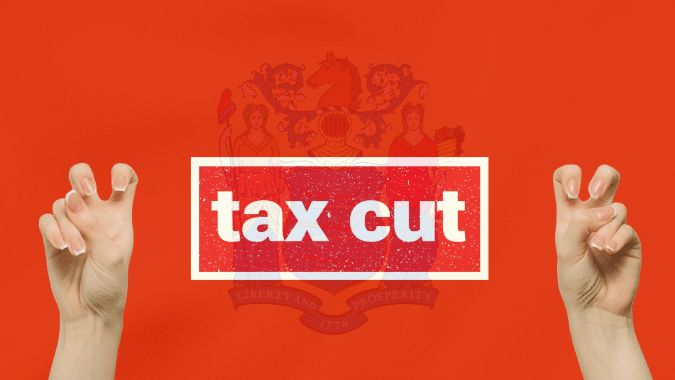While a bill to raise New Jersey’s gas tax by nearly 10 cents over the next five years is driving on the fast track, NJBIA currently has a neutral position on it.
Although the association strongly supports New Jersey’s Transportation Trust Fund program and transportation infrastructure investments, there is a need to tap the brakes before accelerating on another tax increase.
“Transportation investments, as a general rule, are good for our economy and our quality of life,” said NJBIA Chief Government Affairs Officer Christopher Emigholz. “But the need for this proposed gas tax increase should be defined before it is signed into law.
“Given that we are currently seeing this gas tax increase bill to fund transportation, a proposed $1 billion business tax increase to fund transportation, the recently announced fare and toll hikes to fund transportation, a proposed truck tax that will impact transportation and billions of dollars– more coming from the federal infrastructure law for transportation, our taxpayers deserve to see a transparent and holistic plan on transportation funding and spending before this TTF bill moves forward.
“With all of this funding, it is entirely appropriate to ask why this increase is needed, what is the money going toward, what tax or fee increases are truly needed and have the least and most impact on our economic growth,” Emigholz said.
On Thursday, the Assembly Transportation and Independent Authorities Committee advanced the bill (A-4011) upon party lines that would:
- Increase the gas tax 1.9 cents per gallon in each of the next five years, or a total of 9.5 cents, starting July 1. The current state gas tax is 31.8 cents per gallon.
- Implement a $250 fee on electric vehicles, which will go up by $10 in each of the last four years of the deal.
The annual trust fund program is expected to remain a $2 billion spending program in the first two years of the five-year plan.
Currently the fund is divided by the state Department of Transportation ($810 million), New Jersey Transit ($760 million) and county and local governments (sharing $430 million).
OTHER ASKS BEFORE TAX INCREASES
Emigholz said with all of the aforementioned transportation-related funding, “there should be a plan to include some level of reform to ensure greater transportation efficiencies so that we are maximizing our investments.”
And while the gas tax increase may seem modest, Emigholz did call for some offsets.
“The transportation plan eight years ago did have some major offsets in the form of the elimination of the state estate tax and a slight reduction in the sales tax,” he said. “This is a smaller increase, but we can’t keep spending more and expecting that there’s no impact on affordability issues, which everyone can agree New Jersey has.
AN ALTERNATIVE PLAN
While the bill is also expected to pass the Senate Budget & Appropriations Committee on Monday, Senate Republican Leader Anthony Bucco (R-25) and Sen. Latham Tiver (R-8) are planning to propose a bill that build upon the 2016 TTF program to make it “more nimble and functional in 2024.”
In a statement on Thursday, the lawmakers said the plan would reflect “the post-COVID transportation usage of New Jersey residents and shifts funding from a troubled agency back to local communities.”
“The first and most important part of our plan is that it doesn’t raise the gas tax,” Tiver said. “This proposal will also conduct a much-needed audit of NJ TRANSIT because we cannot solve a problem we do not fully understand.
“Following COVID-19, the global mass transit game has changed, and our plans need to change as well. To top it all off, it ensures more transportation projects are getting done by stopping the diversion to NJ TRANSIT and making EV’s pay their fair share.”
The plan proposed by Senators Bucco and Tiver would address ways to fix the Transportation Trust Fund by:
- Reauthorizing the TTF and creating an 8-year program to fix transportation funding.
- Conducting a forensic audit of NJ Transit to hold NJT accountable.
- Closing the electric vehicle loophole – which currently pays nothing into infrastructure maintenance – so everyone pays their fair share.
- Putting debt avoidance funds to better use by investing in transportation.
- Reimagining the program distribution, more money for local infrastructure
The proposal would also provide short term gap funding to NJ TRANSIT for operations and capital prior to implementation of audit recommendations with the goal of seeing the agency becoming more streamlined, they said.

